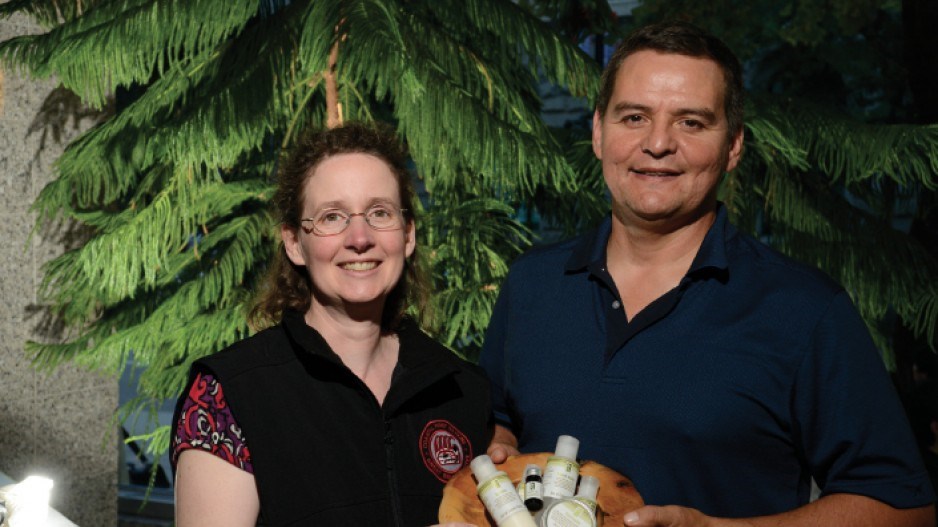To the untrained eye, the bushy green plant growing on a dusty hillside looks unremarkable.
But to Jason Robertson, the barestem desert parsley is food.
“It’s kind of like a spinach,” Robertson, a member of the Lytton First Nation, told Business in Vancouver. “It’s high in iron, fragrant, bursting with flavour ... Our people eat it all the time, and it’s super healthy.” It’s also a new product that has recently found a market: gourmet chefs with an interest in local food.
Robertson runs a small business that deals in berries, mushrooms and other foraged food. He and a Vancouver distributor have been trying to get restaurants interested in barestem desert parsley for about five years. In 2011, Robertson sold 300 pounds; in 2012 he sold 1,500.
B.C. First Nations have gathered berries, mushrooms and other forest bounty for generations. Now some aboriginal groups are finding ways to market forest food outside of their communities, and in some cases even create new products. Johanna Helbig is working with Coastal First Nations, an alliance of bands on B.C.’s central coast, to develop a business making essential oils from conifers like spruce, pine and Western hemlock.
The First Nations live within the area covered by the 2006 Great Bear Rainforest agreement, where logging is restricted. The group has been looking at ways to create environmentally friendly economic opportunities.
Coastal has been working on the essential oils idea since 2004, said Helbig. The boughs can be harvested from waste wood from logging or silviculture activities like pruning; the oil is distilled from the needles.
“It’s been an interesting journey, first of all just figuring out how do you make essential oils ... and what can you do with them,” said Helbig. “It’s taken several years to figure out what we can do with the oils.”
That journey involved learning from lavender distillers and businesses in Quebec that make essential oils from spruce needles. They worked with Victoria’s Silk Road tea company to produce lotions, soaps and shampoos using the oils and have tested some of the products at the Inn at Laurel Point, also in Victoria.
“We’ve found people to enjoy the products and to be very interested in the potential,” said Helbig. “It’s ideal for tourism. We see potential to put products into spas and hotels.”
Keith Hunter has been exploring business opportunities for wild plants since 2005. Hunter, who is originally from Texas, owns First Nations Wildcrafters with his wife, C. Anne Robinson, a member of the Tseshaht First Nation near Port Alberni.
The pair ran a chanterelle mushroom buying station and tried selling salal and moss, which is used by florists. Hunter said a recent BIV story about Vancouver Island’s salal harvesting business, which stated that some harvesters can make as much as $30,000 in a season, doesn’t match his experience (“Shrub at centre of B.C. ‘black market’” – BIV issue 1246; September 10-16).
“It’s really a game of nickels and dimes – it’s rough,” said Hunter. “There’s not the big Cinderella crop out there waiting for people.”
Because of that difficulty, Hunter is now also focusing on essential oils. He hopes to distil oils from cedar, which can be used in natural household cleaning products. He is testing the production process using a small distillation machine. Hunter and Coastal First Nations have both received government funding to help with business development. FP Innovations, a Vancouver-based private forestry research centre, has also assisted with mapping and chemical analysis.
Robertson, Helbig and Hunter say the businesses they’re creating will likely always be small, with a focus on providing employment for community members. •




